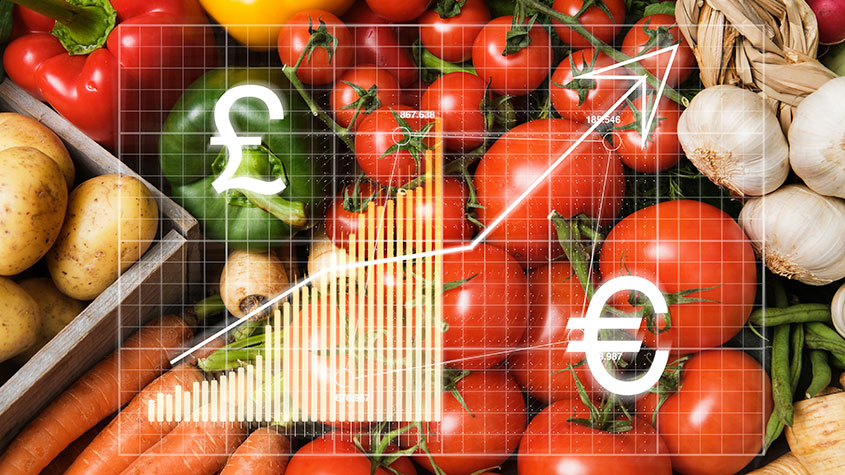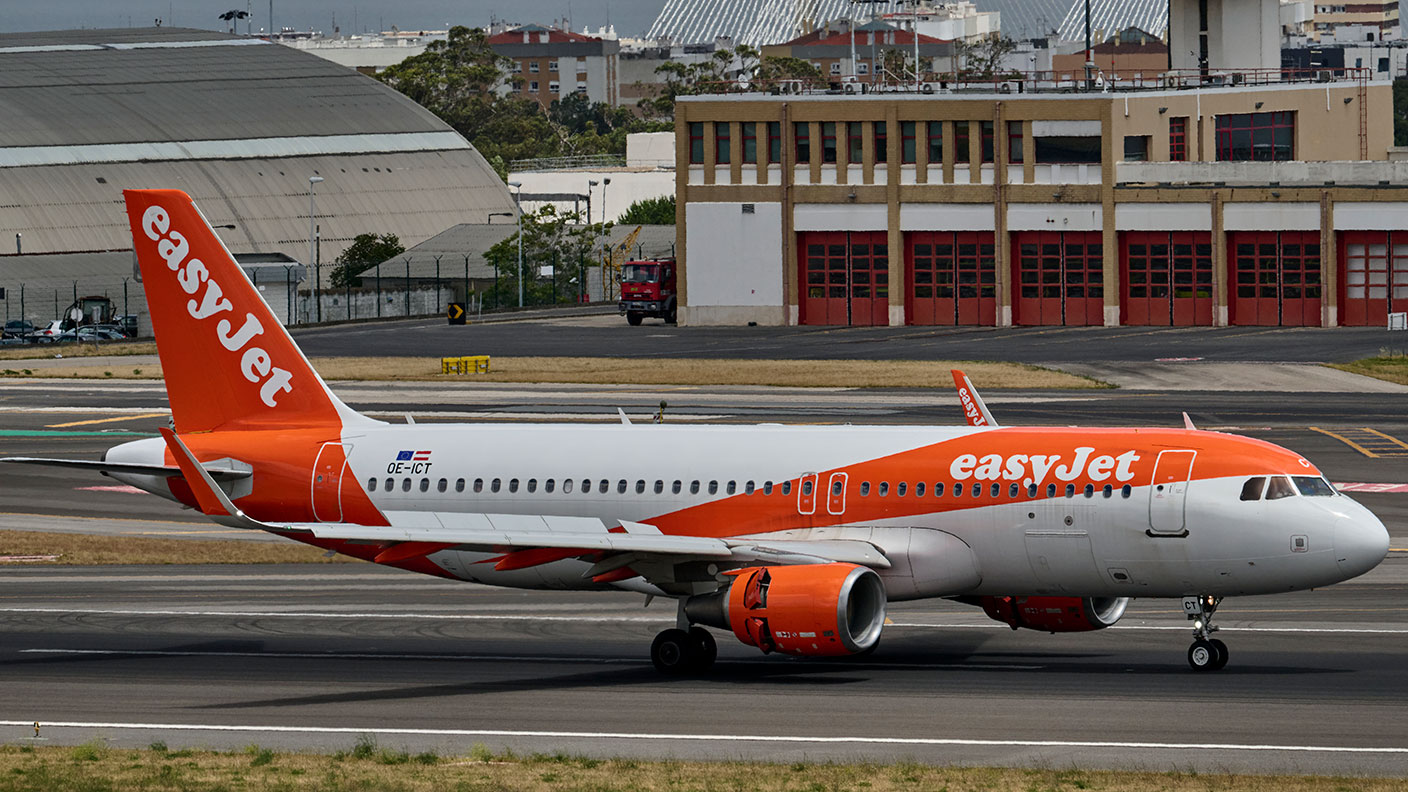Companies in the news: Sainsbury's and EasyJet
Sainsbury's and EasyJet recently reported some very encouraging figures. Phil Oakley looks in to whether you should buy, hold or sell.
Get the latest financial news, insights and expert analysis from our award-winning MoneyWeek team, to help you understand what really matters when it comes to your finances.
You are now subscribed
Your newsletter sign-up was successful
Want to add more newsletters?

Twice daily
MoneyWeek
Get the latest financial news, insights and expert analysis from our award-winning MoneyWeek team, to help you understand what really matters when it comes to your finances.

Four times a week
Look After My Bills
Sign up to our free money-saving newsletter, filled with the latest news and expert advice to help you find the best tips and deals for managing your bills. Start saving today!
J Sainsbury (LSE: SBRY)
Making money from Britain's cash-strapped shoppers has been very hard for some time. But Sainsbury's seems to be enjoying a purple patch. Its strategy of offering good food at fair prices has stuck a chord with customers, while its clothing range goes from strength to strength. And that's not all it has going for it. It's nicely hooked up to the fastest-growing parts of the grocery market convenience stores and internet groceries.
Here it is growing sales at 15%-20% per year. Its Sainsbury's Local stores offer it a bigger bang for its buck than its sprawling supermarkets. So it's good news that Sainsbury's is slowing down the roll-out of bigger stores and opening more smaller ones. As a result, profits and returns to investors are rising.
MoneyWeek
Subscribe to MoneyWeek today and get your first six magazine issues absolutely FREE

Sign up to Money Morning
Don't miss the latest investment and personal finances news, market analysis, plus money-saving tips with our free twice-daily newsletter
Don't miss the latest investment and personal finances news, market analysis, plus money-saving tips with our free twice-daily newsletter
Sainsbury's big rivals are struggling to keep up and are under attack from budget supermarkets Aldi and Lidl. While every pound of extra sales is hard won, Sainsbury's looks well placed to overtake Asda as Britain's second-biggest grocer. Tesco remains a long way ahead, but a lot of its sales are up for grabs. The shares have made steady progress this year, rising by just over 20%. But on 12.5 times next year's earnings with a 4.3% dividend yield, they are still worth buying.
Verdict: buy
EasyJet (LSE: EZJ)
We tipped airline easyJet as a buy a year ago. It's doubled in price since then. In April, we recommended taking some money off the table, which looks a bit hasty now. Those who held on have been rewarded with a 55% jump in the annual dividend to 33.5p, and a special one-off dividend of 44.1p per share that's an 11% income return over the year.
This has been driven by the airline's strong performance across Europe. Its planes have been nearly 90% full across the year. The company is reaping the rewards of not only offering relatively low fares, but also flying to where its customers want to go to (as opposed to minor airports miles away from anywhere), and offering services they want, such as allocated seating. Its lower costs give it a significant advantage over the big legacy flag carriers who are cutting back, which also means easyJet should be able to take a bigger slice of the market. It plans to grow its capacity by 5% next year.
The shares have become cheaper since April, as profit forecasts have risen faster than the share price, and on 12.7 times next year's earnings, they aren't ridiculously expensive. We wouldn't chase them higher here, but if you still own them, hang on.
Verdict: hold
Get the latest financial news, insights and expert analysis from our award-winning MoneyWeek team, to help you understand what really matters when it comes to your finances.
Phil spent 13 years as an investment analyst for both stockbroking and fund management companies.
-
 Should you buy an active ETF?
Should you buy an active ETF?ETFs are often mischaracterised as passive products, but they can be a convenient way to add active management to your portfolio
-
 Power up your pension before 5 April – easy ways to save before the tax year end
Power up your pension before 5 April – easy ways to save before the tax year endWith the end of the tax year looming, pension savers currently have a window to review and maximise what’s going into their retirement funds – we look at how
-
 How to profit from rising food prices: which stocks should you invest in?
How to profit from rising food prices: which stocks should you invest in?Tips Food prices are rising – we look at the stocks to avoid and the one to invest in this sector.
-
 Avoid easyJet shares – there are better airlines to invest in
Avoid easyJet shares – there are better airlines to invest inTips EasyJet used to be one of Europe’s most impressive airlines. But now it is facing challenges on all fronts and losing out to the competition. Rupert Hargreaves explains why you shouldn’t buy easyJet shares.
-
 Easyjet profits fall as it bids to become the world’s first “zero carbon” airline
Easyjet profits fall as it bids to become the world’s first “zero carbon” airlineFeatures EasyJet reported a fall in profits today, after a “difficult” year, but is hoping to become the first “zero carbon” airline by offsetting its carbon emissions at a cost of £25m a year.
-
 What does Lufthansa’s profit warning mean for airline stocks?
What does Lufthansa’s profit warning mean for airline stocks?Features German airline Lufthansa issued a profit warning this morning. And it’s not the only airline finding things tough. But are there any bargains in the sector?
-
 What the merger between Sainsbury’s and Asda means for you
What the merger between Sainsbury’s and Asda means for youFeatures Sainsbury’s and Asda have decided to merge. John Stepek looks what it means for the troubled UK supermarket sector and asks: is it a good deal?
-
 Low-cost flights hit air pocket
Low-cost flights hit air pocketFeatures A ferocious price war has killed off the weaklings in the airline sector. But the survivors are well placed to thrive. Chris Carter reports.
-
Britain’s convenience store battle
Features Sainsbury’s has bid £130m to buy Nisa, the mutually owned consortium of more than 1,300 independent retailers, which operates 3,000 small shops.
-
EasyJet hits turbulence
Features The no-frills airline was a rare success in a cut-throat business, but headwinds are building fast, says Ben Judge.